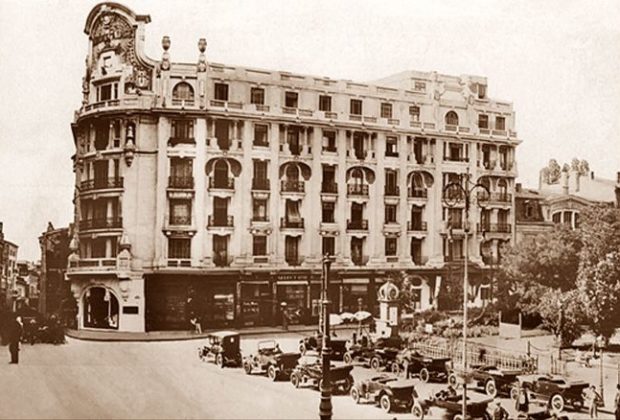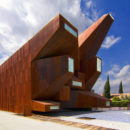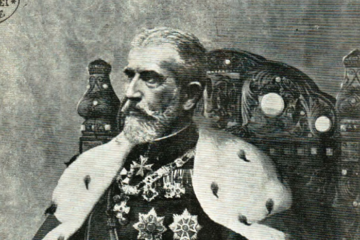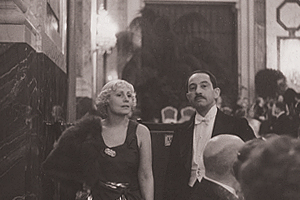
One of the world’s capitals for espionage between 1914 and 1916
Romania just celebrated 100 years since has joined the First World War which lead to the formation of Great Romania in the year 1918. The young Romanian state didn’t start the war in 1914, like many other European states, but looked for the right time to do this move. All that time, Bucharest had become a point of interest for everyone: journalists, representatives of the Central Powers or of the Entente, ambassador of the non-belligerent countries, lobbyists and others. Why did Little Paris become so interesting during the first years of the 20th century and what is it that they wanted when coming here?
Between the 3rd of August 1914 and the 17th of August 1916, Romania went through what the historians call today “the years of neutrality”. The Crown Council that took place in Sinaia, in 1914 didn`t decide for Romania to join the conflict, together with Germany and the Central Powers, like the old King Charles I had hoped. Romania had chosen to stand with Italy and to wait for a better moment to join the war. Neutrality proved to be a tremendous diplomatic battle and Prime-minister Ionel Brătianu turned out to be an incredible player and actor.
Right before the war started, Romania had created the image of the most stable country in the entire area, having a modern army and a fair capacity to mediate regional conflicts. Beyond its important strategic position, Romania had some advantages that made the country a good partner to take into consideration: the speeded internal modernization and reformation process, the state independence obtained between 1877 and 1878, the railroad infrastructure, the urban development (mostly in Bucharest), and also the fact that King was original from a European family.
This image of soft power that the young Romanian state had created for itself was confirmed and valued during the Bucharest Peace in 1913, a treaty that was signed after the end of the Second Balkan War. At that moment Romania obtained the Sothern Dobruja area from Bulgaria and also enforced respect and an image of regional leader.
Thus, Bucharest had been transformed into a field of disputes, intrigues, gossips, and more or less official agreements and negotiations. The commencing of war, the unexpected decision of the Crown Council in August 1914, the death of King Charles I and the appointment of Ferdinand – all these factors lead to a tensed situation.
The fact that Romania chose neutrality displeased the Central Powers very much, in particular because King Charles I had secretly signed the alliance treaty with these countries. But it was a defensive treaty, while the world war had started from the Declaration of War made by Austro-Hungary against Serbia. However, German and Austrian diplomats were trying to make all sorts of promises with the purpose of attracting Romanians on their side.
Except the promise that involved getting back the land of Basarabia, Prime Minister Ionel Brătianu got some very interesting signals right since the beginning of the war. For example, the German War Minister von Falkenhayn was trying to convince the Austro-Hungarian Emperor Franz Joseph to cease a part of Bucovina to Romania, more precisely the county of Suceava, that was ruled by Austro-Hungarians, in order to get in exchange an active collaboration from Romania`s part before the winter of 1914.
This information was reaching the decision makers in Bucharest through various channels: official, delegated representatives, spies and all sorts of informants. Another promise that was rising during the neutrality times concerned the city of Odessa (a promise made by the German state sub-secretary Zimmermann to the Romanian minister Nicu Filipescu). Afterwards, following the suggestion of German Exterior Minister von Jagow and of field marshal von Conrad, the Austro-Hungarian Government had promised Romania the land of Negotin, in Serbia.
However, all these intrigues and diplomatic disputes took place within a relatively small area of Bucharest: the Royal Palace and its surrounding area, as most foreigners were accommodated at the Athenée Palace Hotel.
The Athenée Palace Hotel, the core of intrigues
This is how Editor Ernst Latham described the local situation during the First World War: “Romania was the only European country where the journalists coming from neutral or allied countries were able to work and the country was in a magnificent historical position. If the German army would go south, they had to cross Romania; if they would go east, they had to set up their invasion base here. Romania was a capital for history. And the Athenée Palace Hotel was the core of all intrigues”.
Read the article in The Art of Living Magazine no 15 DOWNLOAD









